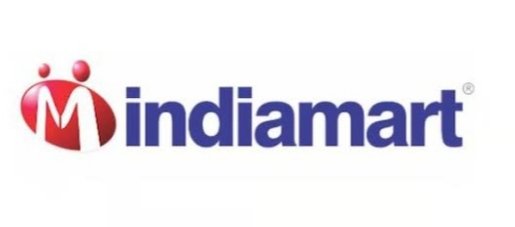1. Amazon

approx monthly visitors: 716.08 million
Amazon is a US-based company, founded in 1994. It only reached Indian shores in 2013, but has been wholeheartedly embraced by the population. Today, it is the largest online marketplace in India – by a long shot – with millions of daily visitors.
Most Indian consumers turn to online platforms to shop for electronics. And Amazon is no exception. However, this vast online store also attracts consumers looking for other products, including.
Amazon’s journey in India began in 2013 when it entered the market with the acquisition of the local e-commerce platform, Junglee.com. Since then, Amazon has made significant strides in establishing itself as a leading player in India’s e-commerce landscape, leveraging its global expertise and resources to cater to the diverse needs of Indian consumers.Despite Amazon’s rapid growth and expansion in India, it’s important to recognize that the country’s e-commerce market is uniquely nuanced, shaped by its rich cultural heritage, diverse consumer preferences, and dynamic business landscape.In addition to offering a wide range of products, including electronics, Amazon has also made efforts to localize its offerings by partnering with local sellers, artisans, and businesses. Through initiatives like Amazon Saheli and Amazon Karigar, the company has empowered thousands of Indian artisans and women entrepreneurs to reach a wider audience and grow their businesses.Moreover, Amazon’s s
**Pros:**
1. Wide Selection::
Amazon offers a vast array of products across numerous categories, providing customers with a comprehensive shopping experience.
2. Convenience::
With its easy-to-use interface and various features like one-click ordering, Amazon makes shopping convenient for users.
3. Fast Delivery::
Amazon Prime offers fast and reliable shipping, often with next-day or even same-day delivery options available in many locations.
4. Customer Reviews::
Customers can read and leave reviews, providing valuable feedback and helping others make informed purchasing decisions.
5. Subscription Services::
Amazon offers subscription services like Amazon Prime, Amazon Music, and Amazon Prime Video, providing added value to customers.
6. Competitive Pricing::
Amazon often offers competitive pricing, along with frequent discounts and deals, making it attractive for budget-conscious shoppers.
7. Global Reach::
Amazon operates in multiple countries, providing access to its services and products worldwide.
**Cons:**
1. Counterfeit Products::
Due to the sheer volume of sellers on the platform, there have been instances of counterfeit or low-quality products being sold.
2. Third-Party Sellers::
While third-party sellers provide variety, it can also lead to inconsistencies in product quality, customer service, and shipping times.
3. Privacy Concerns::
Some users may have concerns about privacy and data security, especially given Amazon’s vast collection of user data.
4. Impact on Local Businesses::
Amazon’s dominance in e-commerce has been criticized for its negative impact on local businesses and traditional retail stores.
5. Environmental Impact ::
The convenience of fast shipping can contribute to increased carbon emissions and packaging waste, raising environmental concerns.
6. Dependency ::
Relying heavily on Amazon for shopping needs may lead to a lack of diversity in shopping habits and reliance on a single platform.
7. Ethical Concerns::
Amazon has faced criticism regarding its labor practices, treatment of workers, and corporate policies, which may influence some consumers’ decisions to support the company.
2. Flipkart

approx monthly visitors: 324.32 million.
Flipkart is without a doubt Amazon’s greatest rival in the battle for the top ecommerce site, but its visitor numbers are nowhere near that of Amazon.
Flipkart is still an Indian success story, however. It was founded in 2007 in Bangalore by friends Sachin Bansal and Binny Bansal.
In 2018, American giant Walmart acquired a majority stake, resulting in Flipkart’s market value of $37.6 billion in 2022.
Flipkart follows a similar marketplace business model to Amazon, selling electronics, fashion, books, and furniture.
**Pros:**
1. Wide Selection::
Amazon offers a vast array of products across numerous categories, providing customers with a comprehensive shopping experience.
2. Convenience::
With its easy-to-use interface and various features like one-click ordering, Amazon makes shopping convenient for users.
3. Fast Delivery::
Amazon Prime offers fast and reliable shipping, often with next-day or even same-day delivery options available in many locations.
4. Customer Reviews::
Customers can read and leave reviews, providing valuable feedback and helping others make informed purchasing decisions.
5. Subscription Services::
Amazon offers subscription services like Amazon Prime, Amazon Music, and Amazon Prime Video, providing added value to customers.
6. Competitive Pricing::
Amazon often offers competitive pricing, along with frequent discounts and deals, making it attractive for budget-conscious shoppers
7. Global Reach::
Amazon operates in multiple countries, providing access to its services and products worldwide.
**Cons:**
1. Counterfeit Products::
Due to the sheer volume of sellers on the platform, there have been instances of counterfeit or low-quality products being sold.
2. Third-Party Sellers::
While third-party sellers provide variety, it can also lead to inconsistencies in product quality, customer service, and shipping times.
3. Privacy Concerns::
Some users may have concerns about privacy and data security, especially given Amazon’s vast collection of user data.
4. Impact on Local Businesses::
Amazon’s dominance in e-commerce has been criticized for its negative impact on local businesses and traditional retail stores.
5. Environmental Impact::
The convenience of fast shipping can contribute to increased carbon emissions and packaging waste, raising environmental concerns.
6. Dependency::
Relying heavily on Amazon for shopping needs may lead to a lack of diversity in shopping habits and reliance on a single platform.
7. **Ethical Concerns:** Amazon has faced criticism regarding its labor practices, treatment of workers, and corporate policies, which may influence some consumers’ decisions to support the company.
3 . Myntra
approx monthly visitors: 93.64 million
Myntra is another Indian online retail success story. This company was founded in 2007 and mainly sold personalised gifts. Today, it is the largest online variety shopping platform focused on fashion and apparel.
Interestingly, Myntra was sold to Flipkart in 2014. This was seemingly a good deal, as the online store has since blossomed.
Myntra takes the utmost care with its supply chain management to ensure customers always have an excellent shopping experience.
**Pros:**
1. Fashion Variety::
Myntra offers a vast range of fashion products, including clothing, footwear, accessories, and beauty products, catering to diverse tastes and preferences.
2. Exclusive Brands::
Myntra features exclusive brands and collections, providing unique and trendy options for customers who seek something different.
3. Convenience::
Myntra’s user-friendly interface and intuitive browsing experience make shopping convenient for users, whether on the website or mobile app.
4. Personalized Recommendations:: Myntra utilizes algorithms to provide personalized product recommendations based on a user’s browsing and purchase history, enhancing the shopping experience.
5. Frequent Discounts and Offers:: Myntra often provides discounts, offers, and seasonal sales, making it attractive for shoppers looking for good deals and savings.
6. Convenient Delivery and Returns:: Myntra offers reliable delivery services, including options for fast shipping and hassle-free returns, ensuring customer satisfaction.
7. Fashion Trends and Styling Tips:: Myntra regularly updates users on fashion trends, styling tips, and celebrity-inspired looks through its blog and social media channels, keeping them informed and inspired.
**Cons:**
1. Size and Fit Issues::
Buying clothing and footwear online can sometimes result in size and fit issues, as customers cannot try on items before purchasing, although Myntra provides size guides to mitigate this.
2. Competitive Pricing::
While Myntra offers discounts and deals, some products may still be priced higher compared to other e-commerce platforms or offline stores.
3. Environmental Impact::
The packaging and shipping involved in e-commerce, including Myntra, can have environmental consequences, such as increased carbon emissions and packaging waste.
4. Dependency on Technology::
Like any e-commerce platform, Myntra relies heavily on technology, and technical glitches or outages can disrupt the shopping experience for users.
5. Return Process::
While Myntra offers a return policy, the process may be time-consuming or involve certain conditions, depending on the specific product and reason for return.
6. Limited Product Categories::
While Myntra specializes in fashion, it may have a limited selection compared to general e-commerce platforms like Amazon or Flipkart, which offer a wider range of products.
7. Privacy Concerns::
Users may have concerns about the privacy and security of their personal and financial information when making online transactions, although Myntra implements security measures to protect user data.
4. IndiaMART
Approx monthly visitors: 60.51 million
IndiaMART is an online business-to-business marketplace. When it was founded back in 1999, the main aim was to connect buyers and suppliers.
Currently, IndiaMART is India’s largest online B2B marketplace, with a 60% market share of the industry.
This website connects manufacturers, suppliers, and exporters, allowing them to promote and expose their products to one another and perform their business online via the platform.
Here are some pros and cons of IndiaMART, an e-commerce website focused on B2B (business-to-business) transactions.
**Pros:**
1. Wide Range of Products::
IndiaMART offers a vast array of products and services from various industries, catering to the needs of businesses across different sectors.
2. Business Networking::
IndiaMART serves as a platform for businesses to connect and network with suppliers, manufacturers, wholesalers, and distributors, facilitating B2B transactions and collaborations.
3. Market Expansion::
IndiaMART enables businesses to reach a wider market beyond their local or regional boundaries, expanding their customer base and potential sales opportunities.
4. Convenience::
Businesses can conveniently browse and compare products and suppliers on India MART’s platform, saving time and effort in sourcing and procurement processes.
5. Competitive Pricing::
IndiaMART often features competitive pricing for products and services, allowing businesses to find cost-effective solutions for their procurement needs.
6. Verified Suppliers::
IndiaMART verifies suppliers and sellers on its platform, providing businesses with assurance regarding the authenticity and reliability of the products and services offered.
7. Customer Support::
IndiaMART offers customer support services to assist businesses with inquiries, transactions, and dispute resolution, ensuring a smooth and satisfactory experience for users.
**Cons:**
1. Quality Control::
Despite supplier verification, there may still be instances of quality issues or discrepancies in products and services offered on IndiaMART, leading to potential dissatisfaction for buyers.
2. Communication Challenges:: Communication with suppliers and negotiation of terms may pose challenges, especially when dealing with a large number of suppliers or language barriers between parties.
3. Dependency on Suppliers::
Businesses relying heavily on IndiaMART for sourcing may face challenges if key suppliers experience disruptions or fail to meet expectations in terms of product quality or delivery timelines.
4. Transaction Risks::
Transactions conducted through IndiaMART involve inherent risks, including payment security concerns, non-delivery of goods, or disputes over product specifications, requiring businesses to exercise caution and due diligence.
5. Competition::
IndiaMART faces competition from other B2B e-commerce platforms, as well as traditional sourcing methods, which may impact its market share and growth potential.
6. Subscription Fees::
IndiaMART may charge subscription fees or transaction fees for access to certain features or premium services, which can add to the overall cost for businesses utilizing the platform.
7. Limited Scope::
While IndiaMART offers a wide range of products and services, it may not cover every industry or niche, limiting its suitability for businesses with specialized procurement needs.
5. Meesho
Approx monthly visitors: 46.27 million
We’re happy to report that Meesho is yet another ecommerce success coming from the streets of India.
Meesho was founded in 2015, with headquarters in Bangalore. Today, Meesho is a one-stop shop for a variety of products, including mobile phones, apparel, and electronics.
This online marketplace is not standing still, either. Meesho was valued at $37.8 million in April 2023, which climbed by 14% to a value of $43.2 million by August 2023. It seems there is an ongoing demand in the Indian market for India-based ecommerce sites.
**Pros:**
1. Convenience::
E-commerce platforms offer convenience, allowing users to shop from the comfort of their homes or on-the-go using their smartphones.
2. Wide Selection::
Many e-commerce websites provide a vast array of products, giving customers numerous options to choose from.
3. Competitive Pricing::
Due to the high level of competition, e-commerce platforms often offer competitive pricing and discounts, benefiting customers.
4. Accessibility::
E-commerce websites are accessible 24/7, allowing users to shop at any time that’s convenient for them.
5. User Reviews::
Customers can read reviews and ratings from other buyers, helping them make informed purchasing decisions.
6. Convenient Payment Options::
E-commerce platforms usually offer various payment options, including credit/debit cards, digital wallets, and sometimes cash on delivery.
7. Convenient Delivery::
Many e-commerce websites offer fast and convenient delivery options, including same-day or next-day delivery in some areas.
**Cons:**
1. Security Concerns::
Users may have concerns about the security of their personal and financial information when making online transactions.
2. Quality Issues::
Sometimes, the quality of products received may not meet expectations, especially when buying from third-party sellers.
3.Shipping Costs::
While some e-commerce websites offer free shipping, others may have shipping costs that add to the overall purchase price.
4. Return and Refund Process:
The return and refund process can sometimes be cumbersome or time-consuming, depending on the e-commerce platform’s policies.
5. Dependence on Technology:
E-commerce relies heavily on technology, and technical glitches or outages can disrupt the shopping experience for users.
6. Lack of Personal Interaction:
Unlike traditional retail stores, e-commerce lacks the personal interaction and assistance that some customers may prefer.
7. Environmental Impact:
The packaging and shipping involved in e-commerce can have environmental consequences, such as increased carbon emissions and packaging waste.
6. JioMart
Approx monthly visitors: 37.13 million
JioMart describes itself as “India’s number 1 shopping destination”. And, although they’re technically India’s seventh shopping destination, they still get a lot of visitors each month.
JioMart was started as a joint venture between Jio Platforms and Reliance Retail online platforms. They sell every product imaginable, including fruits!
JioMart also has a mobile app, making it a convenient shopping option for Indian consumers who hate going to brick-and-mortar stores.
Here are some pros and cons of JioMart, an e-commerce platform operated by Reliance Industries.
**Pros:**
1. Wide Range of Products::
JioMart offers a wide variety of products, including groceries, household essentials, electronics, fashion, and more, catering to diverse consumer needs.
2. Convenience::
JioMart provides a convenient shopping experience through its website and mobile app, allowing users to shop from the comfort of their homes and have groceries delivered to their doorstep.
3. Competitive Pricing::
JioMart often offers competitive pricing and discounts on products, making it attractive for budget-conscious shoppers seeking value for money.
4. Integration with WhatsApp:
JioMart allows users to place orders through WhatsApp, leveraging the messaging platform’s widespread popularity and convenience for seamless shopping.
5. Reliable Delivery:
JioMart promises reliable and timely delivery of orders, ensuring customer satisfaction with efficient logistics and fulfillment services.
6. Cashback and Rewards:
JioMart occasionally offers cashback and rewards to customers, incentivizing repeat purchases and enhancing the overall shopping experience.
7. Partnerships and Tie-ups::
JioMart has entered into partnerships and tie-ups with local retailers and kirana stores, enabling them to fulfill orders and expand their reach through the platform.
**Cons:**
1. Limited Geographic Availability:: Jio Mart’s services may be limited to certain regions or cities, restricting access for users outside these areas and limiting its market reach.
2. Product Availability::
There may be instances of product unavailability or out-of-stock items, leading to frustration for customers and potential loss of sales.
3. Delivery Challenges::
Despite efforts to ensure reliable delivery, JioMart may face challenges such as delays, missed deliveries, or logistical issues, affecting the overall customer experience.
4. Competition::
JioMart competes with other established e-commerce players in the grocery and retail space, requiring continuous innovation and investment to differentiate itself and attract customers.
5. Privacy Concerns::
Users may have concerns about privacy and data security, especially when sharing personal information and payment details on the platform, necessitating robust data protection measures.
6. Dependency on Jio Network:
Jio Mart’s integration with Jio’s network infrastructure may lead to dependency issues, as disruptions or outages in Jio’s services could impact the availability and performance of the platform.
7. Customer Service::
While JioMart strives to provide good customer service, there may be instances of inadequate support or response times, leading to dissatisfaction among users with queries or issues.
7. AJIO
Approx visitors: 29.35 million
AJIO is perhaps not the biggest ecommerce site in India, valued at about $2.07 million in 2022. But it still gets about 10% of all fashion ecommerce sales in the country. The reason for its popularity is possibly because it’s owned by Reliance Retail, the largest Indian retailer in terms of revenue.
AIJO may not stock electronics, but everything else can be found on this site. Men’s, women’s and kids’ clothes are available, as well as beauty products, furniture, and decor. It’s a dream online shopping destination, which is why so many Indians visit this online retailer each .
Here are some pros and cons of AJIO, an e-commerce platform focused on fashion.
Here are some pros and cons of AJIO, an e-commerce platform focused on fashion.
**Pros:**
1. Fashion Variety::
AJIO offers a diverse range of fashion products, including clothing, footwear, accessories, and beauty products, catering to a wide range of tastes and preferences.
2. Exclusive Collections::
AJIO features exclusive collections from both Indian and international brands, providing unique and trendy options for customers.
3. Convenience::
AJIO provides a user-friendly interface and seamless browsing experience, making it easy for customers to explore and purchase products either through the website or mobile app.
4. Personalized Recommendations::
AJIO utilizes data-driven algorithms to offer personalized product recommendations based on users’ browsing history and preferences, enhancing the shopping experience.
5. Frequent Discounts and Offers::
AJIO frequently offers discounts, deals, and seasonal sales, allowing customers to save money on their purchases and avail themselves of attractive offers.
6. Convenient Delivery Options::
AJIO offers various delivery options, including fast shipping and hassle-free returns, ensuring a convenient shopping experience for customers.
7. Fashion Trends and Styling Tips::
AJIO provides fashion trend updates, styling tips, and inspiration through its blog and social media channels, helping customers stay updated with the latest fashion trends.
**Cons:**
1. Size and Fit Issues::
Like any online fashion retailer, AJIO may face challenges with size and fit issues, as customers cannot try on clothes before purchasing, leading to potential returns or exchanges.
2. Competitive Pricing::
While AJIO offers discounts, some products may still be priced higher compared to other e-commerce platforms or offline stores, depending on the brand and product category.
3. Environmental Impact::
The packaging and shipping involved in e-commerce, including AJIO, contribute to environmental concerns such as carbon emissions and packaging waste.
4. Dependence on Technology:
AJIO relies heavily on technology for its operations, and technical glitches or website outages may occasionally disrupt the shopping experience for users.
5. Return Process:
While AJIO has a return policy in place, the return process may be time-consuming or involve certain conditions, depending on the product and reason for return.
6. Limited Product Categories:
Although AJIO specializes in fashion, its product offerings may be limited compared to general e-commerce platforms that offer a broader range of products.
7. Privacy Concerns:
Customers may have concerns about the privacy and security of their personal and financial information when making online transactions, although AJIO implements security measures to protect user data.
FAQs
1 .What are new trends in the Indian ecommerce market?
Several emerging trends are shaping the Indian e-commerce market:
1. **Social Commerce:** With the increasing popularity of social media platforms like Instagram, Facebook, and WhatsApp, social commerce is gaining traction in India. Sellers are leveraging these platforms to showcase products, engage with customers, and facilitate transactions directly within social media apps.
2. **Voice Commerce:** Voice-enabled shopping experiences are becoming more prevalent with the rise of smart speakers and virtual assistants. Indian consumers are increasingly using voice commands to search for products, add items to their carts, and place orders, driving the adoption of voice commerce solutions by e-commerce platforms.
3. **Hyperlocal Delivery:** Hyperlocal delivery models are gaining momentum, especially in urban areas, where consumers demand faster delivery times and personalized services. E-commerce platforms are partnering with local retailers and logistics providers to offer same-day or even instant delivery of products, meeting the growing expectations of convenience and speed.
4. **Augmented Reality (AR) and Virtual Reality (VR):** AR and VR technologies are being integrated into the e-commerce shopping experience, allowing consumers to visualize products in a virtual environment before making a purchase. This immersive shopping experience enhances engagement, reduces returns, and increases customer satisfaction.
5. **Subscription-based Services:** Subscription-based e-commerce models are becoming increasingly popular in India, offering consumers convenience, savings, and personalized experiences. From subscription boxes for beauty products and groceries to subscription-based streaming services, these models are reshaping how consumers access and consume products and services.
6. **Green and Sustainable E-commerce:** With growing awareness about environmental sustainability, there is a rising demand for eco-friendly and sustainable products among Indian consumers. E-commerce platforms are responding by offering a curated selection of environmentally friendly products, promoting ethical sourcing and production practices, and implementing eco-friendly packaging solutions.
7. **Artificial Intelligence (AI) and Machine Learning (ML):** AI and ML technologies are being leveraged by e-commerce platforms to enhance the shopping experience through personalized product recommendations, chatbots for customer service, predictive analytics for inventory management, and fraud detection algorithms for secure transactions.
8. **Direct-to-Consumer (D2C) Brands:** Direct-to-consumer brands are bypassing traditional retail channels and selling products directly to customers through e-commerce platforms and their own websites. These brands offer unique, high-quality products at competitive prices, leveraging digital marketing and social media to reach their target audience and build brand loyalt
2.How range is the Indian ecommerce market?
The Indian e-commerce market is incredibly diverse and encompasses a wide range of products, services, and business models. From large multinational platforms like Amazon and Flipkart offering everything from electronics to fashion, to niche players specializing in specific product categories such as beauty, groceries, or furniture, the market caters to a broad spectrum of consumer needs and preferences. Additionally, the Indian e-commerce market includes various business models such as marketplace platforms, direct-to-consumer brands, social commerce, and hyperlocal delivery services, providing consumers with a plethora of options for shopping online. Overall, the range of offerings and the diversity of players make the Indian e-commerce market expansive and dynamic
3 .Global Top Ecommerce Websites names list?
here are some of the top global e-commerce websites.
1.amazon
2 .Alibaba
3.eBay
4.Walmart
5.JD.com
6. Shopify
7 .Rakuten
8. Taobao
9.Etsy
10 Target.
These websites are leaders in the e-commerce industry and serve millions of customers worldwide with a wide range of products and services.









